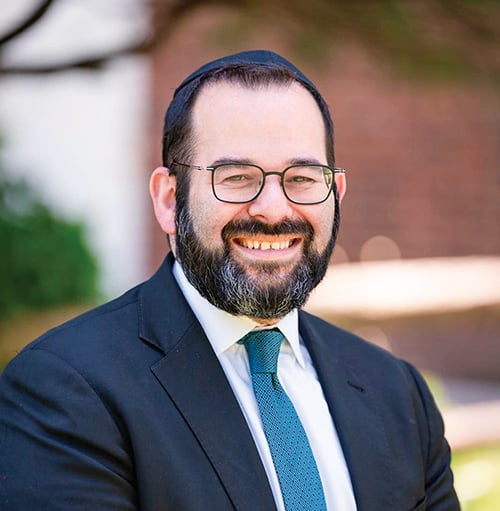“I have also given him (Betzalel) Oholiav, son of Achisomoch of the tribe of Dan (as an assistant). (Besides this), I have placed wisdom in the heart of the wise and they shall make all that I have commanded you (Shemos 31:6).”
Rabbi Yochanan said, “HaKadosh Baruch Hu only gives wisdom to those who are already wise, as it is written, “He gives wisdom unto the wise, and knowledge to those who know understanding,” (Daniel 2:21). Rav Tacḥalifa—from Eretz Yisrael—heard this and repeated it before Rabbi Abbahu. Rabbi Abbahu said to him: “You learnt it from that pasuk, but we learn it from this pasuk: ‘And in the hearts of all who are wise-hearted I have placed wisdom,’” (Shemos 31:6) (Brachos 55:A).
Zera Shimshon asks: What is the purpose of giving wisdom to wise people? By definition, wise people have wisdom! Why, then, does Hashem give them something that they already have? It would be more beneficial to give wisdom to ignorant people!
The truth is that the midrash (Midrash Koheles 1:7) brings that a certain noblewoman asked Rabbi Yossi ben Chalafta this exact question: Why does Hashem give wisdom to wise people, who don’t really need it, and not to ignorant people, who do need it? Rabbi Yossi ben Chalafta answered with a parable. He asked her: If two people came to borrow money from her—one poor and one wealthy—to whom would she lend money to? She answered that she would surely lend to the wealthy person, since even if he loses the loaned money, he will still be able to pay back the loan. Rabbi Yossi explained to the noble woman that it is the same with Hashem. If Hashem would give wisdom to fools, they would use it in wash rooms, theaters and bath houses. However, since Hashem gives wisdom to the wise, they use the wisdom in shuls and in batei midrash.
Zera Shimshon gives a different explanation: It is written in the Gemara in Niddah (69b-70a) that the citizens of Alexandria asked 12 questions to Rabbi Yehoshua ben Chanina. One of the questions was, “What should a person do to become wise?” He answered them, “Increase the time that you learn and minimize the time that you work.” They argued, “Many people have done that, but they were not successful?” Rabbi Yehoshua ben Chanina answered, “That one should pray for mercy from Hashem.” The Gemara concludes, “Both are needed; one must increase the time they learn, and pray for mercy from Hashem. It is not enough one without the other.”
We see from here that one who learns with great hasmadah—long hours and diligently, doesn’t necessarily become wise! He could still forget what he learns, not understand things correctly or his learning will not bring him to the proper conclusion.
We also learn from here that just a burning desire to become a talmid chacham and to daven to Hashem to “make it happen” also isn’t enough.
To become a chacham both are needed; to put in the effort and learn long hours and also to daven to Hashem to succeed.
This—concludes Zera Shimshon—is the meaning of Rabbi Yochanan’s statement, “HaKadosh Baruch Hu only gives wisdom to the wise. Hashem only gives wisdom to one who increased the time that he learned and minimized the time that he worked and, therefore, began to acquire wisdom. Hashem answers such a person’s prayers and grants him true long-lasting wisdom.”













